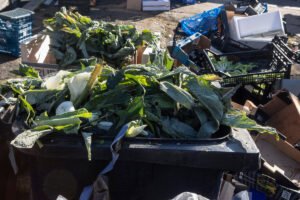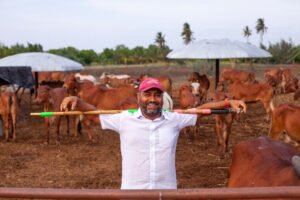Wednesday, 18 February 2026
Singapore-India partnership to develop cage-free eggs market in Asia
Global Food Partners and CFFRPPA team up for cage-free success in India Leading corporations, including Unilever, Nestle and Marriott, are committed to sourcing only cage-free eggs by 2025, and many…

Global Food Partners and CFFRPPA team up for cage-free success in India
Leading corporations, including Unilever, Nestle and Marriott, are committed to sourcing only cage-free eggs by 2025, and many have already begun to make the switch.
To prepare for this growing demand, producers have begun to produce cage-free eggs. Adopting cage-free production methods involves a significant learning process, and by starting now, producers can optimise their production over time, leading up to 2025.
Global Food Partners (GFP) – a Singapore-based consulting firm – and India’s Cage-free and Free-range Poultry Producers Association (CFFRPPA) – have signed an exclusive partnership agreement to support the country’s egg farmers to transition to best practice cage-free production.
Through this partnership, GFP will build capacity through online resources and in-person consultations and workshops in cage-free production and bird health and welfare to CFFRPPA members interested in cage-free farming. The two organisations will also develop a buyer roundtable, to help food and hospitality businesses source cage-free eggs and develop the cage-free market in India.
Jayasimha Nuggehalli, Chief Operating Officer and Co-founder of Global Food Partners, stated, “Our mission at GFP is to create a cage-free ecosystem in Asia, where both egg producers and buyers can achieve sustainable cage-free production and sourcing.”
Ashok Kannan, President of CFFRPPA, said, “Our membership is increasingly interested in producing cage-free eggs, as more and more consumers and corporate clients in India are requesting them.”
Earlier this month, as part of this partnership, CFFRPPA member and farmer and trainer at Happy Hens, Mathavan Damodharan attended Global Food Partners’ week-long training at its Cage-free Welfare and Innovation Hub in Indonesia. The training was led jointly by Global Food Partners, Universitas Gadjah Mada (Indonesia) and Aeres University of Applied Sciences (the Netherlands), and had participants from across Asia, including Singapore, China, India, Malaysia, Indonesia, and Philippines. The training had both theoretical and practical sessions, including visits to a local farm, bird assessments and handling, and collaborative learning activities in the classroom and on-farm.
Technology
Carlsberg Launches AI-Crafted Lunar New Year Packaging
Feb 17, 2026 | Beverages
FAO Experts Assess Risk of Antimicrobial Resistance Spreading via Food Loss and Waste
Feb 17, 2026 | Sustainability
Food Testing
Redefining Trust in Organic Foods through Independent Testing
Feb 13, 2026 | Food Safety and Testing
AFNOR International Eyes Global Food Safety Growth with HACCP Group Takeover
Feb 04, 2026 | Australia
More Popular
Hormel Foods Announces Agreement to Sell Whole-Bird Turkey Business to Life-Science Innovations
Feb 18, 2026 | Company News
Kodiak Expands Frozen Lineup with No Sugar Added Homestyle Power Waffles
Feb 18, 2026 | Company News






